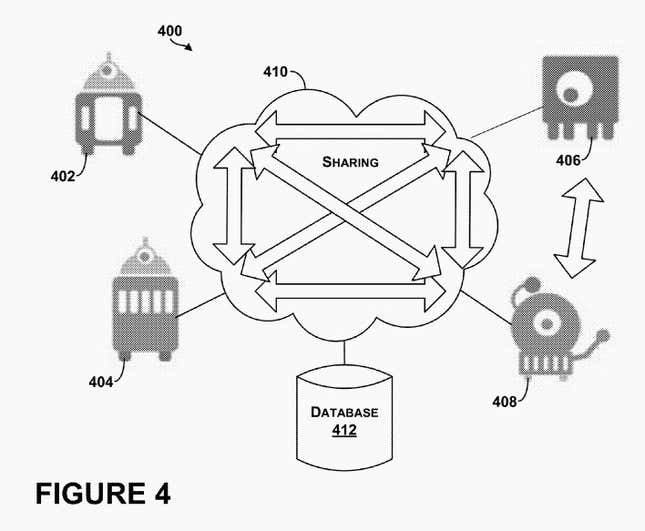After getting a patent for giving robots personalities last month, Google now wants to unleash an army of Rodney Dangerfield bots on the world.
In a patent awarded today, the company outlines a system for “allocating tasks to a plurality of robotic devices.” This sounds innocuous enough—it could mean linking a series of factory robots together, or perhaps a gaggle of Roombas to clean a large house—but the potential is much greater. Google’s patent outlines methods for connecting a series of robots over the cloud to complete tasks, but it doesn’t put a limit on how many robots could be managed at once.

The patent suggests that the robots could be controlled by a smartphone—Google’s mobile operating system is called Android, after all—with tasks doled out based on each robot’s ability to complete them. Someone could theoretically control the botswarm from anywhere in the world. As the patent puts it:
“The plurality of robotic devices of the system may be configured to receive information from the computing component via the network associated with instructions for performing one or more tasks.”
There are certainly legitimate applications of this that Google might have in mind. For example, making sure all of its self-driving cars can communicate with each other and be monitored from a central source seems like a (literal) no-brainer. Applying this task management system to other Google ventures, such as its robotics arm Boston Dynamics, the potential seems a little more worrisome. Hopefully we will not require the services of a skeptical Will Smith to combat Google robots in the future.
The timing on this patent is perfect: The UN is currently meeting to decide whether to restrict or possibly even ban the development of autonomous lethal weapons, and what level of “meaningful human control” such weapons should have. A Google representative told Quartz that some patent ideas “later mature into real products or services, some don’t,” but did not say if the company had any plans to raise a robot army. At the very least, the company could work on a robot soccer team that isn’t terrible.
